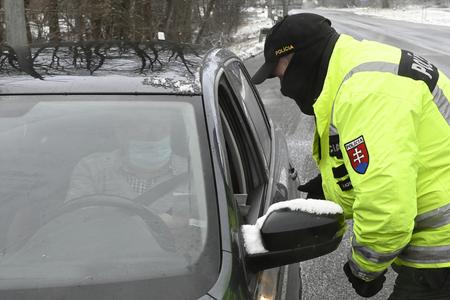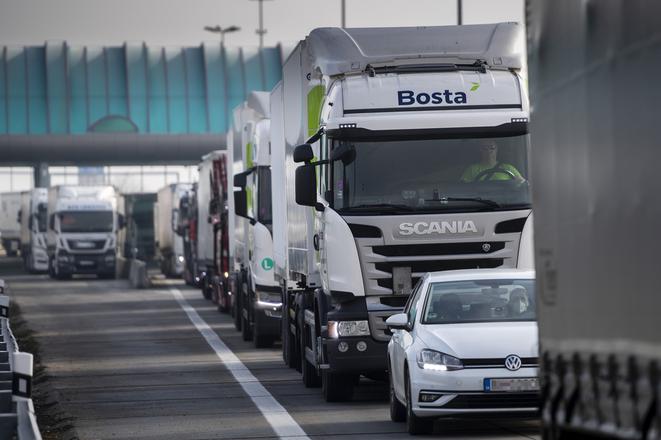In an attempt to prevent the spread of new mutations of the coronavirus, the Czech Republic and Austria will impose stricter measures at the borders and travel to both countries.
Our paywall policy:
The Slovak Spectator has decided to make all the articles on the special measures, statistics and basic information about the coronavirus available to everyone. If you appreciate our work and would like to support good journalism, please buy our subscription. We believe this is an issue where accurate and fact-based information is important for people to cope.
On February 5, 2021, the Czech Republic will add a fourth category of high-risk countries to the list of green, orange and red countries. Slovakia will belong to the fourth category, State Secretary of Foreign Affairs Ministry Martin Klus wrote on Facebook.
Travelling to Czechia
Everyone travelling to the Czech Republic who has spent more than 12 hours in Slovakia in the past 14 days will be obliged to fill in an electronic document before entering the country. The form can be found here.
Moreover, people have a maximum of 48 hours before entering the Czech Republic to take a PCR test in an accredited lab and obtain written confirmation of a negative result.

Upon arrival in the Czech Republic, travellers have to undergo home quarantine until they submit a second negative PCR test result. It is possible to get tested five days after arrival.
The result of the second PCR test must be submitted to the regional hygienic station, or students can show it to the school they attend and employees to their employer.
Everyone is obliged to wear a respirator in public for the first ten days after entering the Czech Republic. The respirator should be at least an FFP2 and the rule applies even if the result of the second PCR test is negative.
International transport drivers, those transitting in the country for up to 12 hours, those making justified trips of up to 12 hours to the country, children under the age of five and cross-border commuters, pupils and students who cross the border at least once a week are exempt from the new rules.
Austria
Austria toughens up border controls, too. Starting on February 10, everybody who enters the country via the Slovak borders will have to remain in 10-day isolation. In addition, people will need a negative antigen or PCR test result.
Those without the test will be able to undergo testing within 24 hours after arriving in Austria, paid from their own pockets. After five days in isolation, they can take another test. If negative, the isolation ends.
All incomers are still required to register online before crossing the borders.
People who are only transiting the country and those who are heading to the airport have an exemption. Another exemption applies to people who travel to Austria for some exceptional reasons (funeral, for example).
Cross-border commuters are exempted from isolation as well. They have to show a negative PCR or antigen test result no older than seven days. They have to register online at https://www.oesterreich.gv.at/ at least once a week (together with a new test).
The possibility getting tested within 24 hours after arriving in Austria applies to cross-border commuters, too.
Prolonged controls on Hungarian border
Hungary has prolonged controls on its borders until March 1, 2021. The Foreign Affairs Ministry noted that since September 1, 2020, non-Hungarian citizens are not allowed to enter Hungary.
An exception applies for foreigners with permanent residence and their family members; however, they must show their ID or valid permission from the Hungarian Foreign Police that allows them to stay in Hungary for longer than 90 days.


 (source: TASR)
(source: TASR)